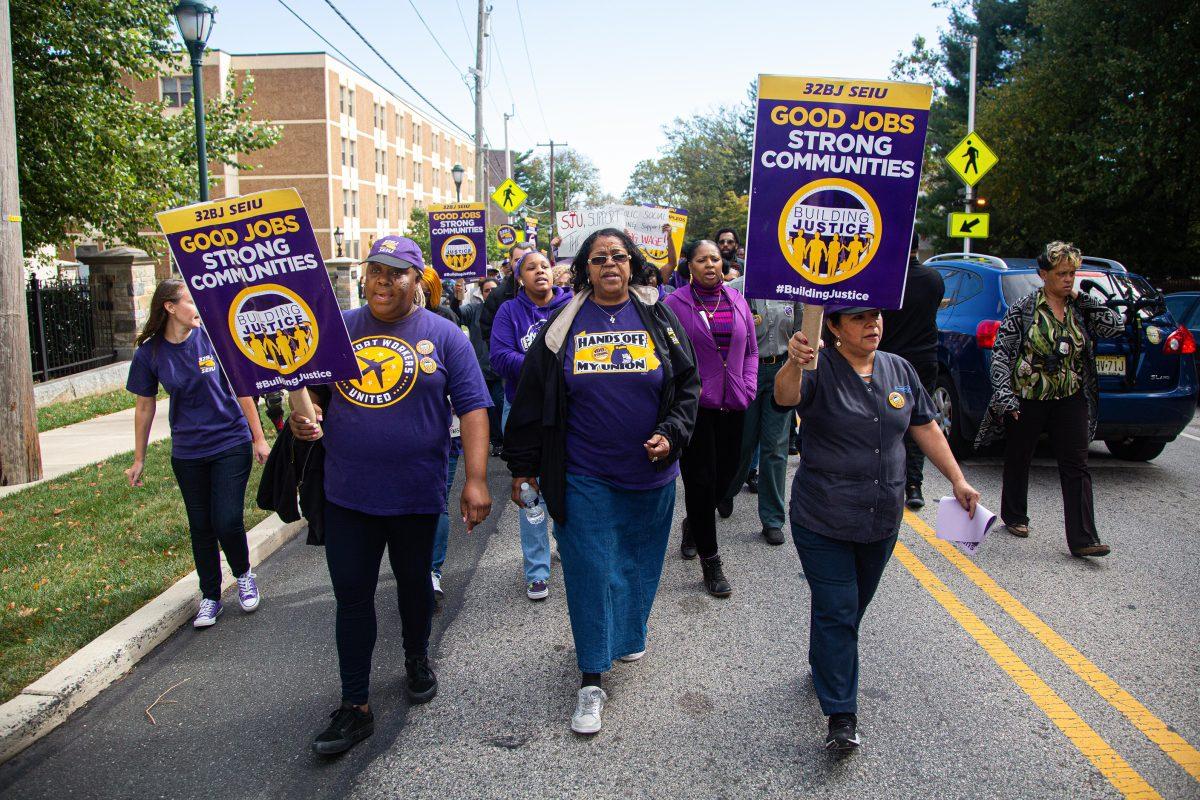Este artículo es disponible en español aquí.
Members of the St. Joe’s housekeeping staff gathered Oct. 10 on campus to express their frustrations over what union representative Daisy Cruz described as a two-decades-long battle for higher wages.
“These workers are just tired,” Cruz said. “They’ve asked nicely, they’ve done everything they’ve needed to do and they’re just tired of getting underpaid.”
The St. Joe’s cleaners, contracted through The Arthur Jackson Company, earn less than $15 per hour. Their counterparts, who clean buildings throughout the Philadelphia area, such as the Comcast Center, are paid roughly $18 an hour.
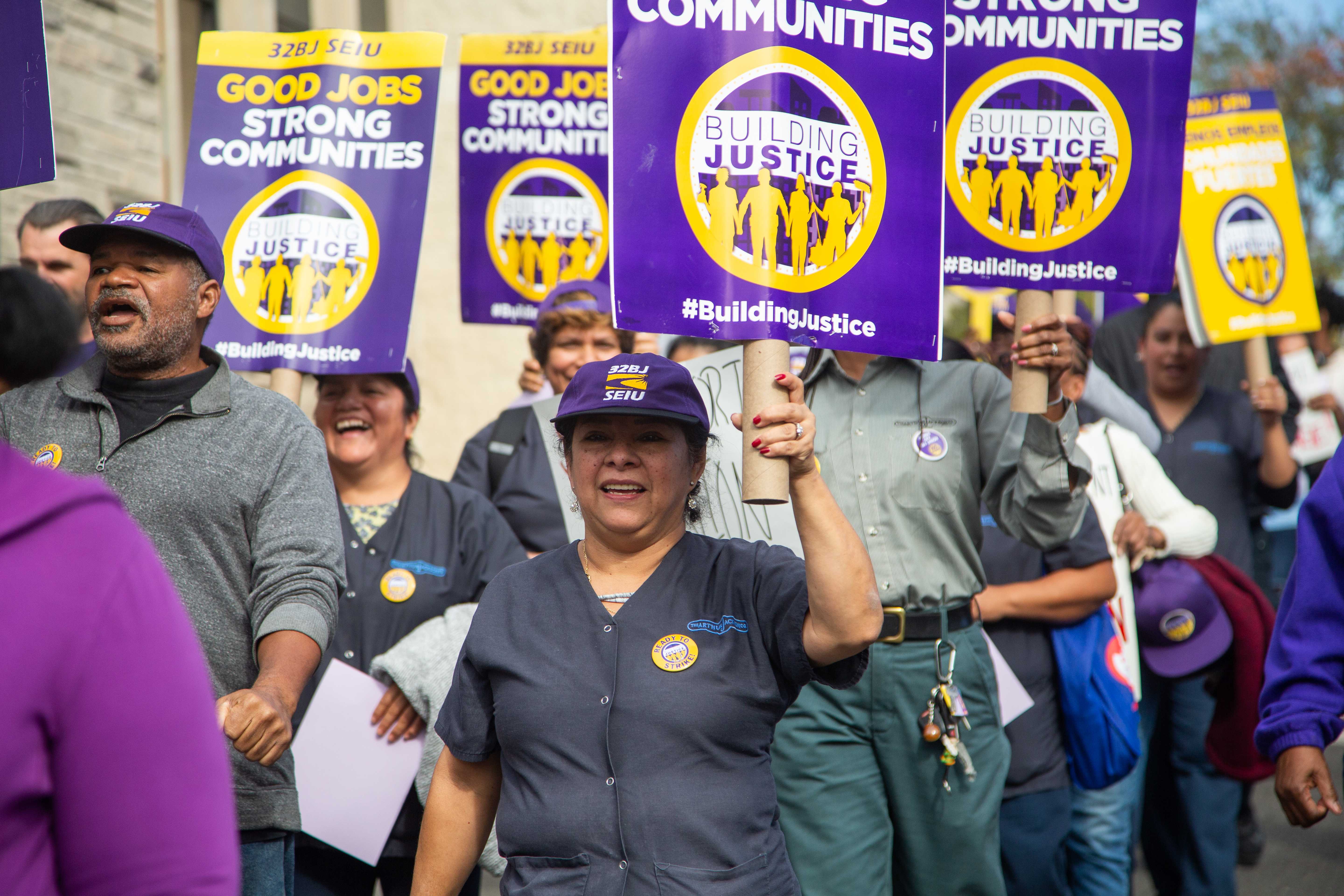
At the rally, the cleaners were joined by students, faculty and staff in a march from Campion Student Center to the corner of Cardinal and City Avenue.
When the march arrived at Cardinal Ave, Shana Cohen, a cleaner at St. Joe’s for over 11 years, sat in the street along with two other women despite police orders to move to the sidewalk. She was placed in handcuffs by police and given a citation along with another St. Joe’s cleaner and the women’s union representative, who were sitting with her.
“We just need a living wage. That’s all we want,” said Cohen, after being released by police. “We work hard at this campus. Without us, this campus wouldn’t look like it looks.”
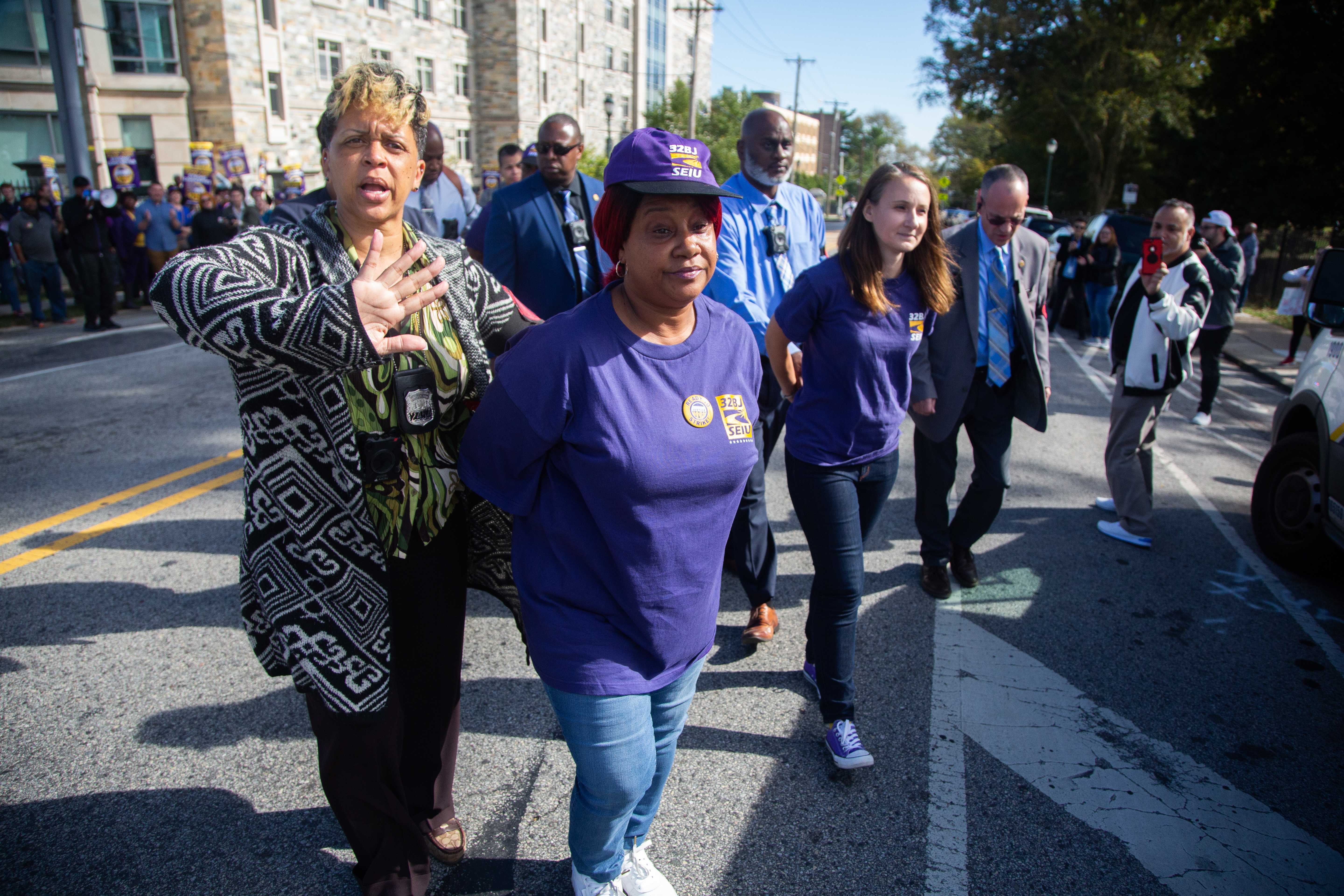
Tamika Fields has worked as a cleaner at St. Joe’s for eight years after being employed by Lankenau Hospital Medical Center. Because Fields’ contract was originally between Arthur Jackson and Lankenau, she is paid around $18 hourly, which other St. Joe’s cleaners are asking for.
“When I saw that when I came on campus that I was getting more than this place, I said it’s the same company and the same union, this is not right,” Fields said.
The workers said they’ve received no explanation from Arthur Jackson, or St. Joe’s, as to why their pay rate is lower.
“They’re doing the same exact work,” Cruz said. “They love their work. They’ve been here a long time. All they’re asking is for a living wage.”
According to University President Mark C. Reed, Ed.D., the contract between St. Joe’s and Arthur Jackson is not in question nor up for renewal at this time. He also said the university is not part of negotiations.
“It is important to note that SJU does not set the wages for vendors’ employees and does not pay contracted staff directly,” Reed said in an email to The Hawk. “While our housekeeping staff are valued members of our community, they are Arthur Jackson employees. Their collective bargaining agreement is with Arthur Jackson, not SJU.”
Reed added, “We support the rights and efforts of contracted workers to advocate for and negotiate a mutually acceptable agreement with their employer.”
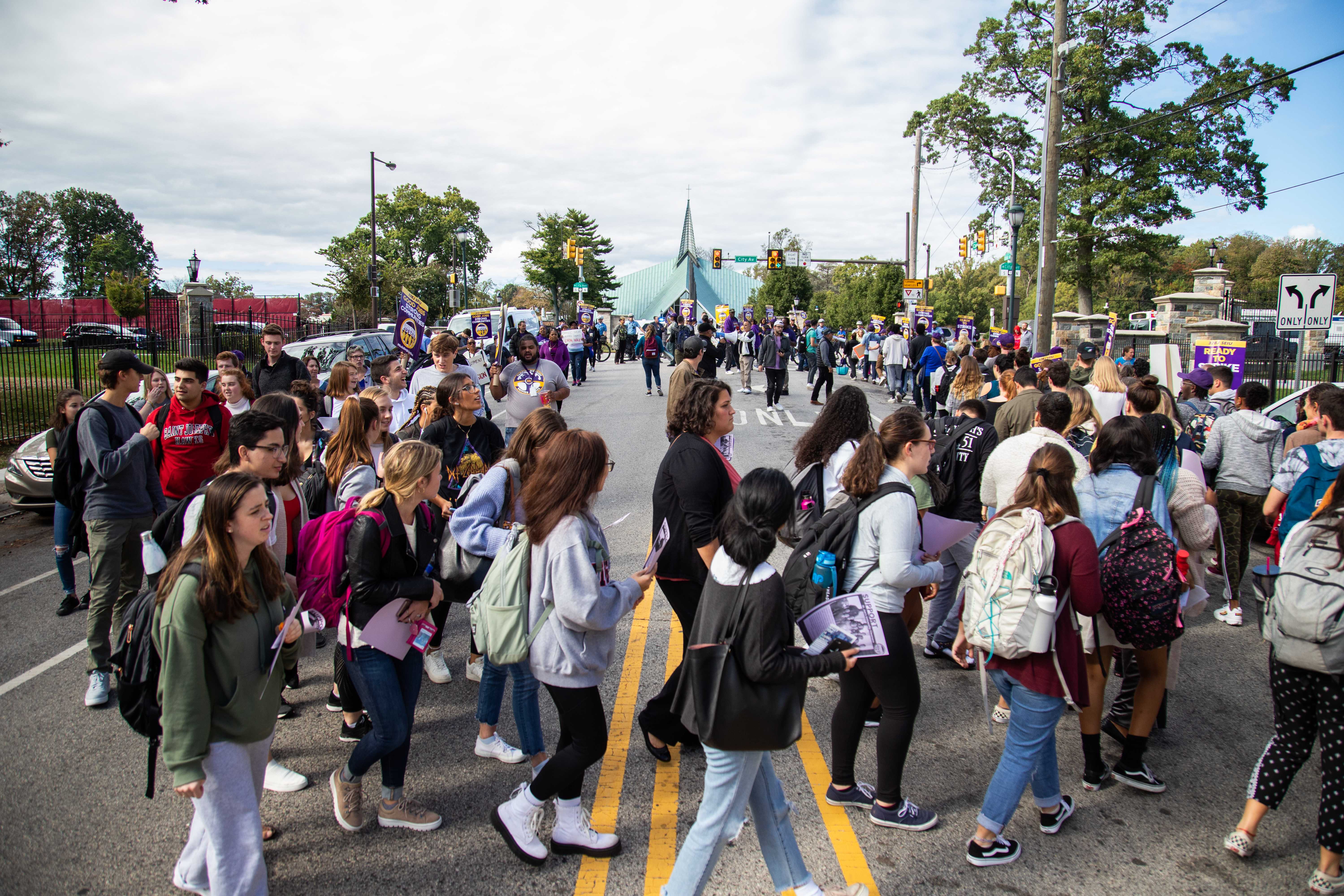
The cleaners said while their main concerns lie with Arthur Jackson, who directly employees them, they’re still asking for the support of the university.
Bob Martin is the president of Building Operations Labor Relations (BOLR), which represents Arthur Jackson, as well as other companies who employ Service Employees International Union (SEUI) 32BJ workers. The SEIU represents the roughly 50 St. Joe’s cleaners.
While there is a general contract between local 32BJ and BOLR that determines details such as how the workers are paid and how workers are provided benefits, there is also a contract between St. Joe’s and Arthur Jackson to provide cleaning services. Within this contract is a specific provision, called a “rider,” that dictates a lower pay rate, according to Martin.
Martin said the rider would have been negotiated between Arthur Jackson and SEIU 32BJ, but St. Joe’s would likely have some say in those discussions. Martin does not know the specifics of the rider, but offered some possible reasoning.
“St. Joe’s might have had a budget that would drive them to having to have some conversations about how expensive the cleaning could or could not be,” Martin said. “Our contract mainly applies to the commercial office sector of the business. Saint Joseph’s University is obviously not a commercial office building and has a much different set of economics associated with it.”
In response to questions from The Hawk, Pete Brown, CEO of The Arthur Jackson Company wrote in an email that it would not be prudent for him to “comment or give out information while negotiations are ongoing.”
In response to a question about the university’s role in the implementation of the rider, Gail Benner, Public Relations Director, said in an email to The Hawk, “I can’t speculate on hypothetical contract scenarios. While we do not have a direct role in the current negotiations between our building maintenance contractor and their employees, we support employees’ right to advocate.”
Rose Weldon, one of the workers involved in the bargaining committee, has been working at St. Joe’s for 20 years. Weldon said “It’s a fight” to get higher wages.
In larger negotiations between 32BJ workers and building managers in the downtown area, workers are looking for expanded pensions and health care. For St. Joe’s employees, their main goal is being paid a wage equal to other workers across the city.
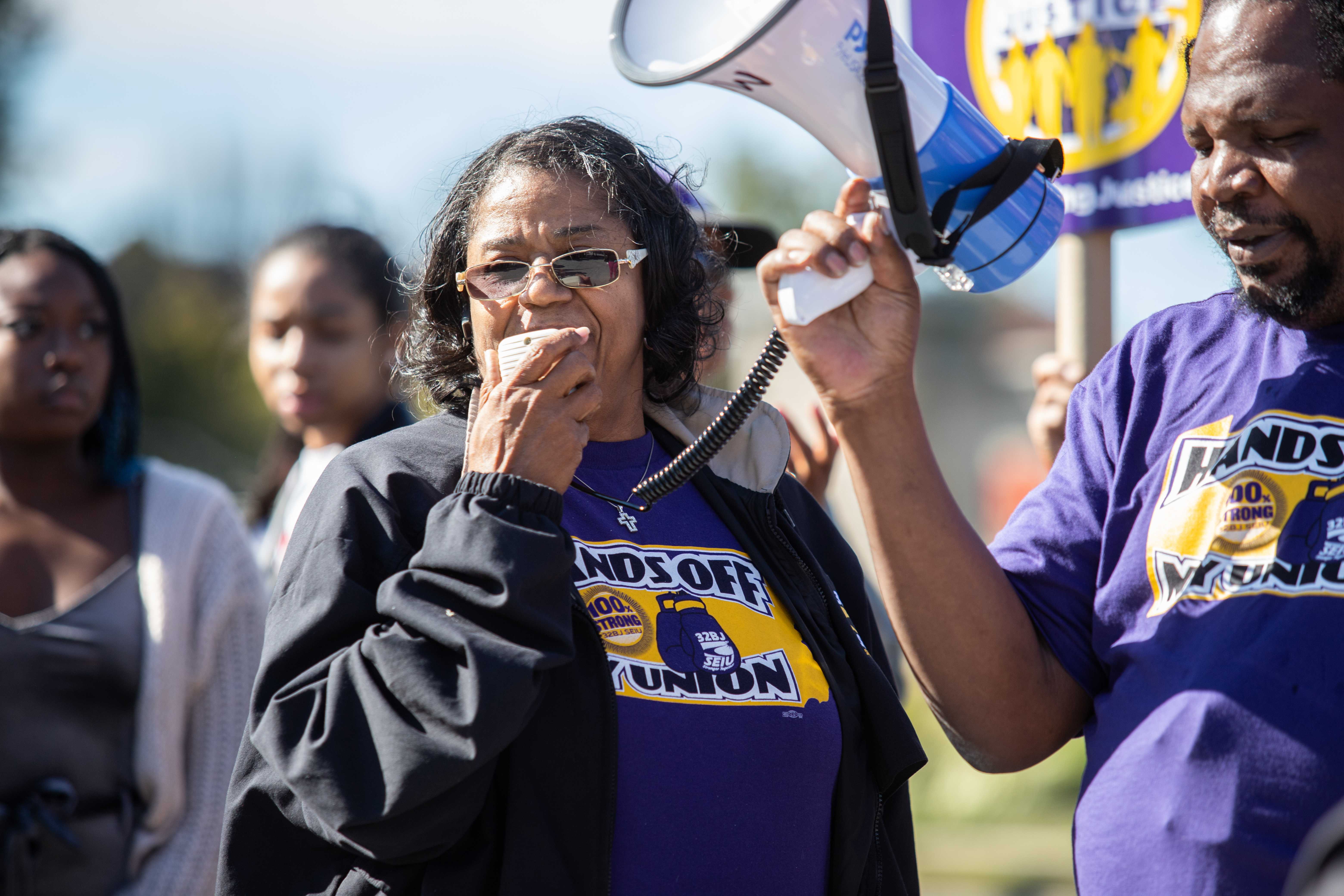
St. Joe’s cleaners will participate in a city-wide strike if they don’t get the wages they’re asking for by midnight Oct. 15, the day the contract between local 32BJ and BOLR expires.
“When we go to the table and it’s not what we want, of course we’re going to shut it down,” Weldon said. “We’re not going to work.”
Attendees of the rally chanted “poverty wages got to go” as they marched through the parking lot adjacent to Campion Student Center.
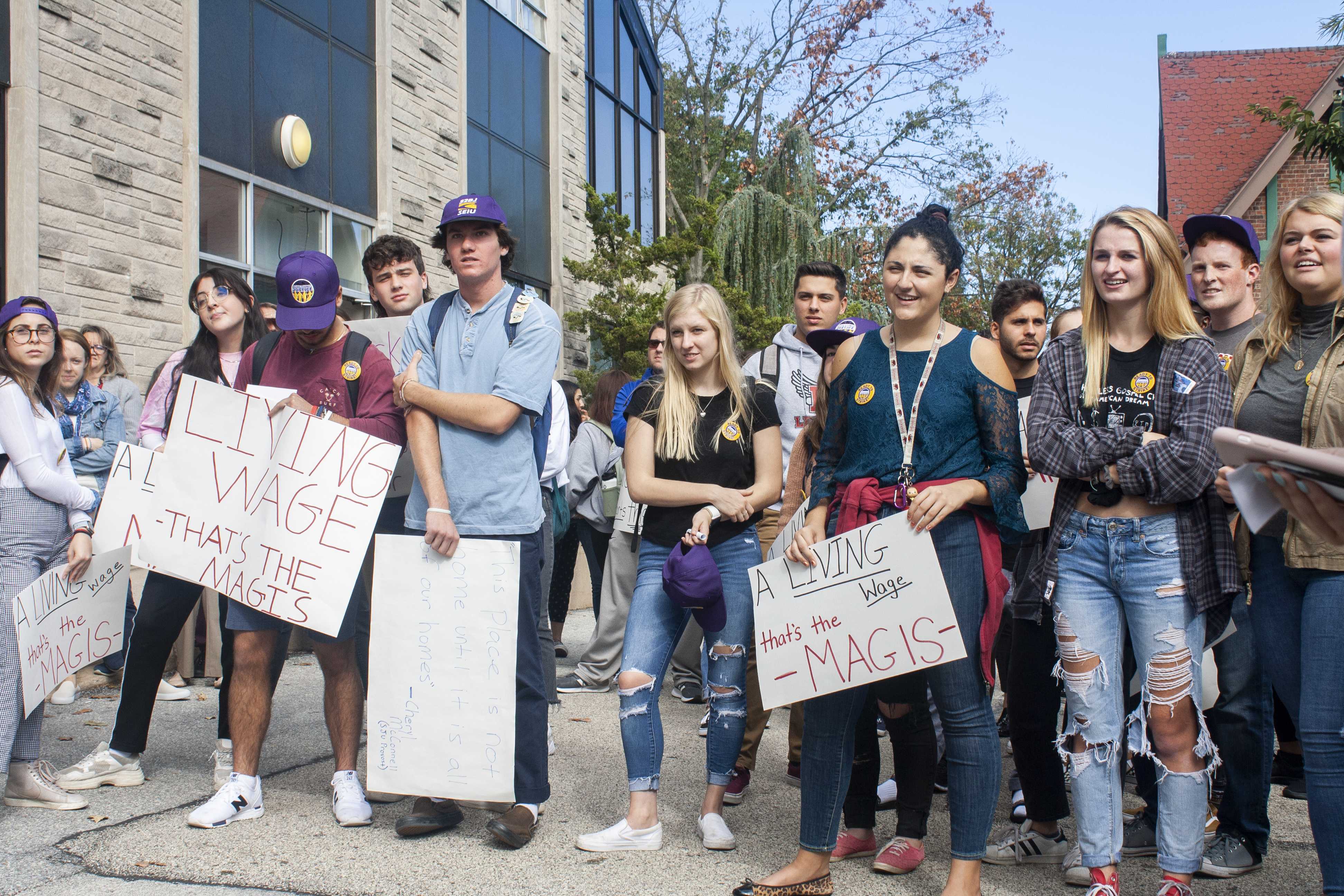
Public Safety, Philadelphia Police and Merion Police officers were present, along with a crowd of about 100 people. Representatives from university groups in attendance included Student Senate, Hawks for Just Employment, the Black Student Union and Campus Ministry.
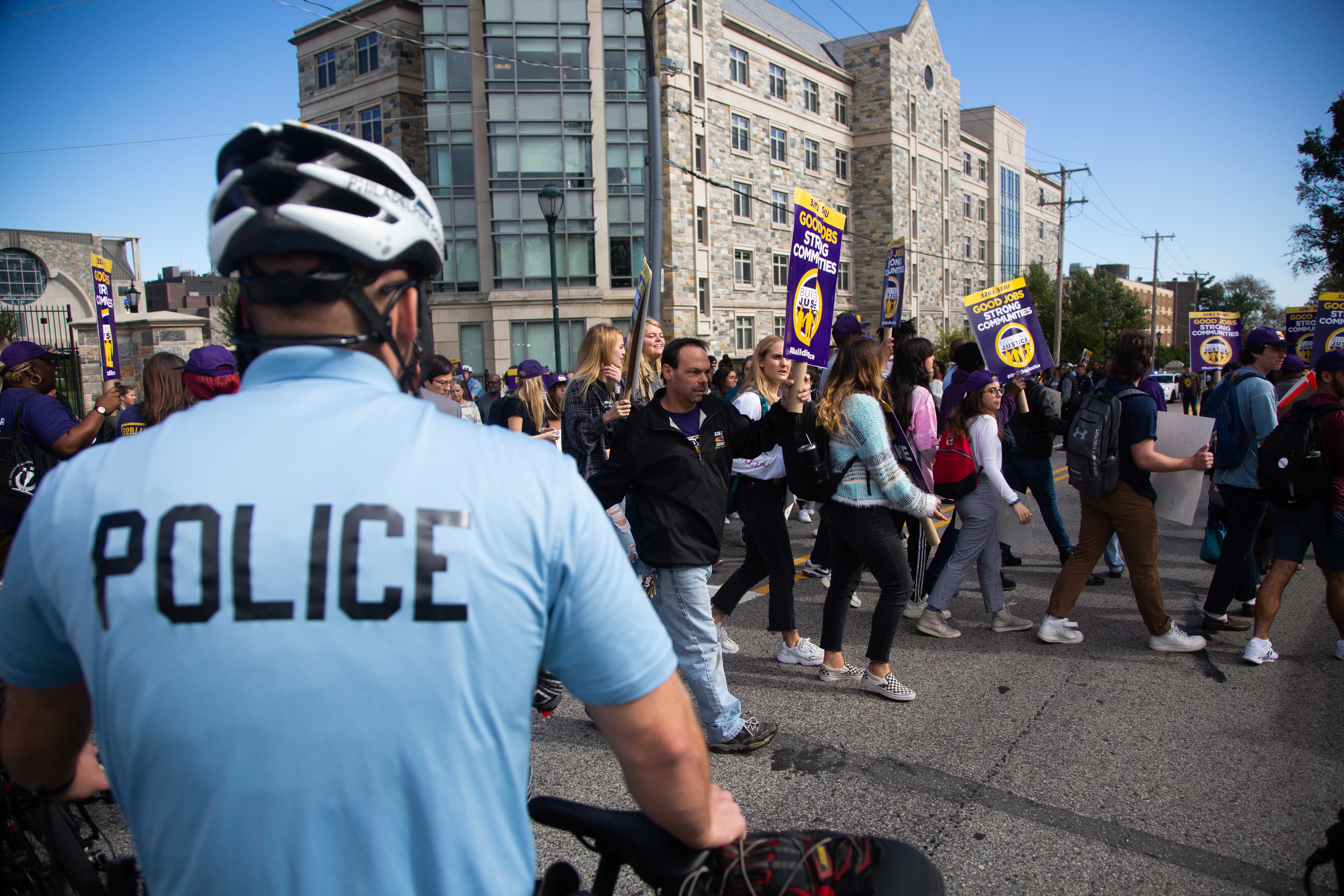
Jess Arends ’20 helped organize the rally with Hawks for Just Employment, a student organization advocating for workers’ rights. The group is working with the university to draft a Just Employment policy on campus. For Arends, workers represent the mission of St. Joe’s.
“This is an act to stand with [the cleaning staff],” Arends said. “Because the St. Joe’s community isn’t just students, faculty and staff. It is all of us.”
Weldon said she thought the rally was effective in getting the message across to “open up the eyes of minds” of university members and galvanize their support.
“We do deserve the pay that we’re asking for,” Weldon said. “Our work has been doubled because they have let people go, so when they let people go that means they have to add that work onto other people. We just deserve our pay. That’s all I can say. We’re still doing our work. We’re still doing our work regardless. We’re just hoping that they would just do right by us.”
The day after the rally, three students connected to Hawks for Just Employment, attempted to present to Reed a petition, signed by 84 university members, calling for the university to stand with its cleaners.
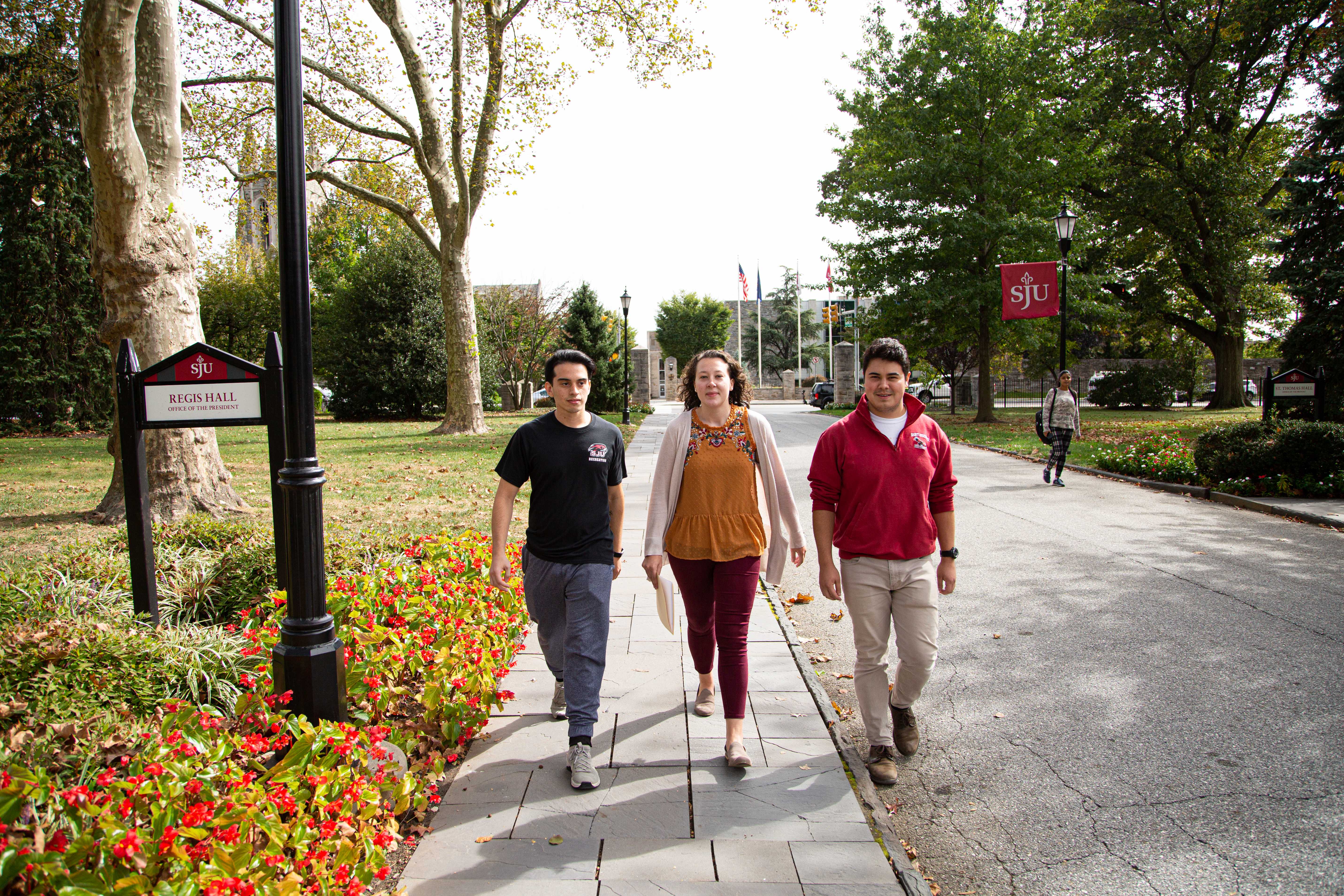
Stephanie Crispell ’20, a leader of Hawks for Just Employment, was one of the students who were welcomed into the President’s Office to hand off the petition. Although Reed wasn’t in his office, an assistant assured them it would get to him.
Crispell told The Hawk she thinks the university, can have an impact on these workers’ requests.
“St. Joe’s sub contracts out to Arthur Jackson as well as other subcontracted workers or organizations, but St. Joe’s has the ability to set stipulations to those contractors, so they can set specific wages that contractors need to implement if they are going to be working at St. Joe’s,” Crispell said. “They can set different dignity of workplace stipulations.”
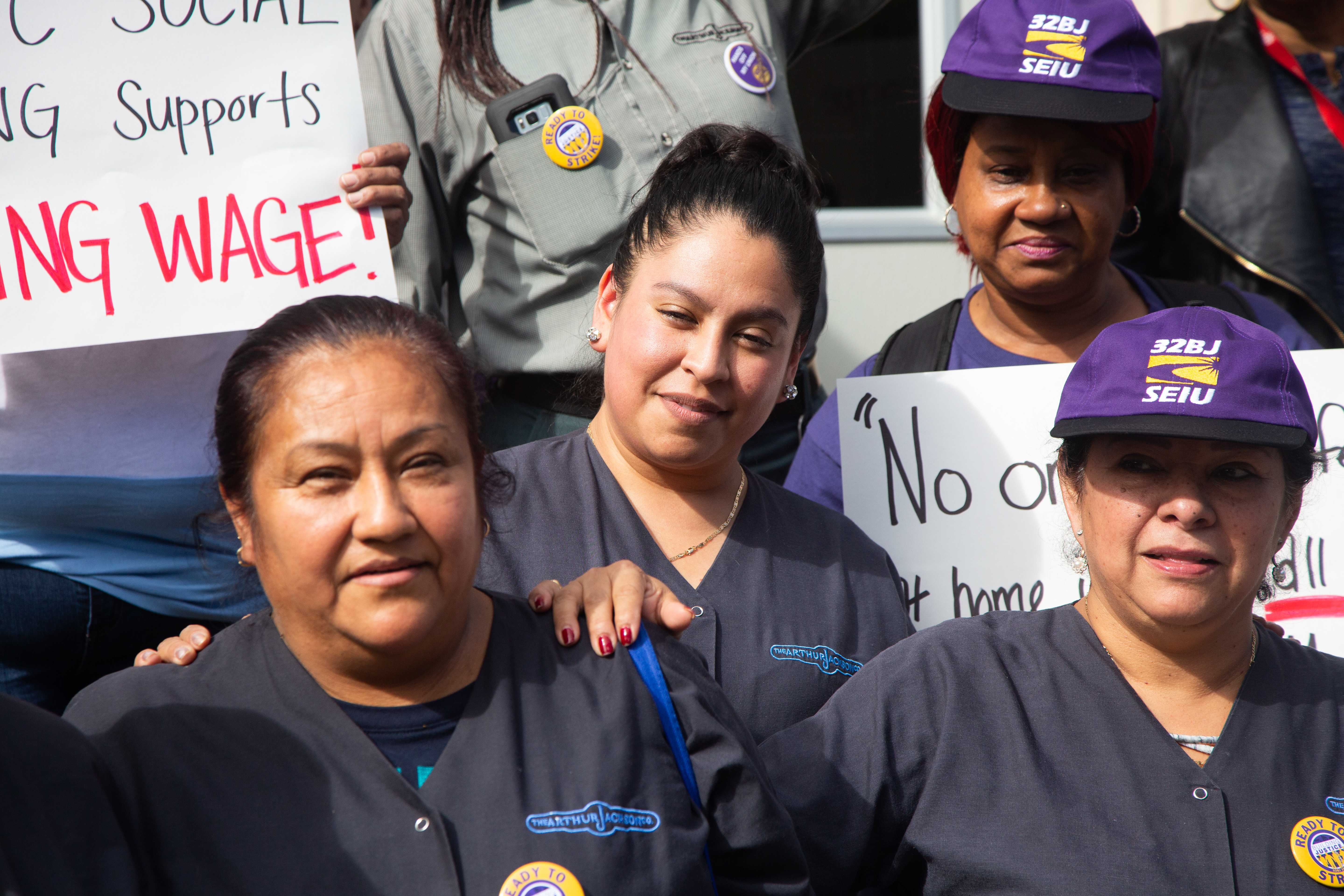
On Sept. 25, Weldon tried to deliver a petition from her co-workers to Reed, “letting them know the frustration of not being paid.”
When Weldon and her co-workers arrived, she said they were met by Public Safety officers and the Director of Public Safety and Security, Art Grover.
Grover said he had word the cleaners would be coming to speak with the president at Regis Hall, but he does not remember who made that call. He said he was asked to receive the petition on Reed’s behalf—outside of the President’s Office.
Reed said he was not on campus at the time and did not instruct Public Safety to be in or around Regis. Still, Weldon said she was disappointed that she was kept away from an office that her co-workers clean.
“It was a little offensive,” Weldon said. “We do work there. We clean there often. I couldn’t understand the logic in it. We weren’t there to hurt anyone. We were just there to pass off a piece of paper.”
Weldon, a minister at her church in West Philadelphia, said the people she works for in the buildings all these years “have been nothing but loving, compassionate, and caring.” Still, she thinks the university can do better concerning their workers—including contracted workers.
“I feel as a university, as a Catholic university, as a religious place, that things should be much different than what they are,” Weldon said. “I believe that people should practice what they preach.”
Cara Smith ’21 contributed to this story.













































